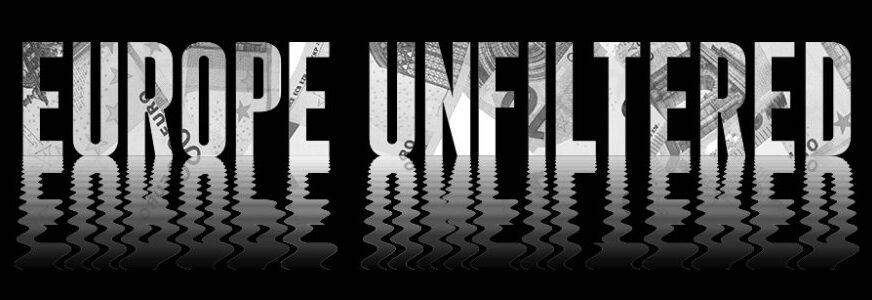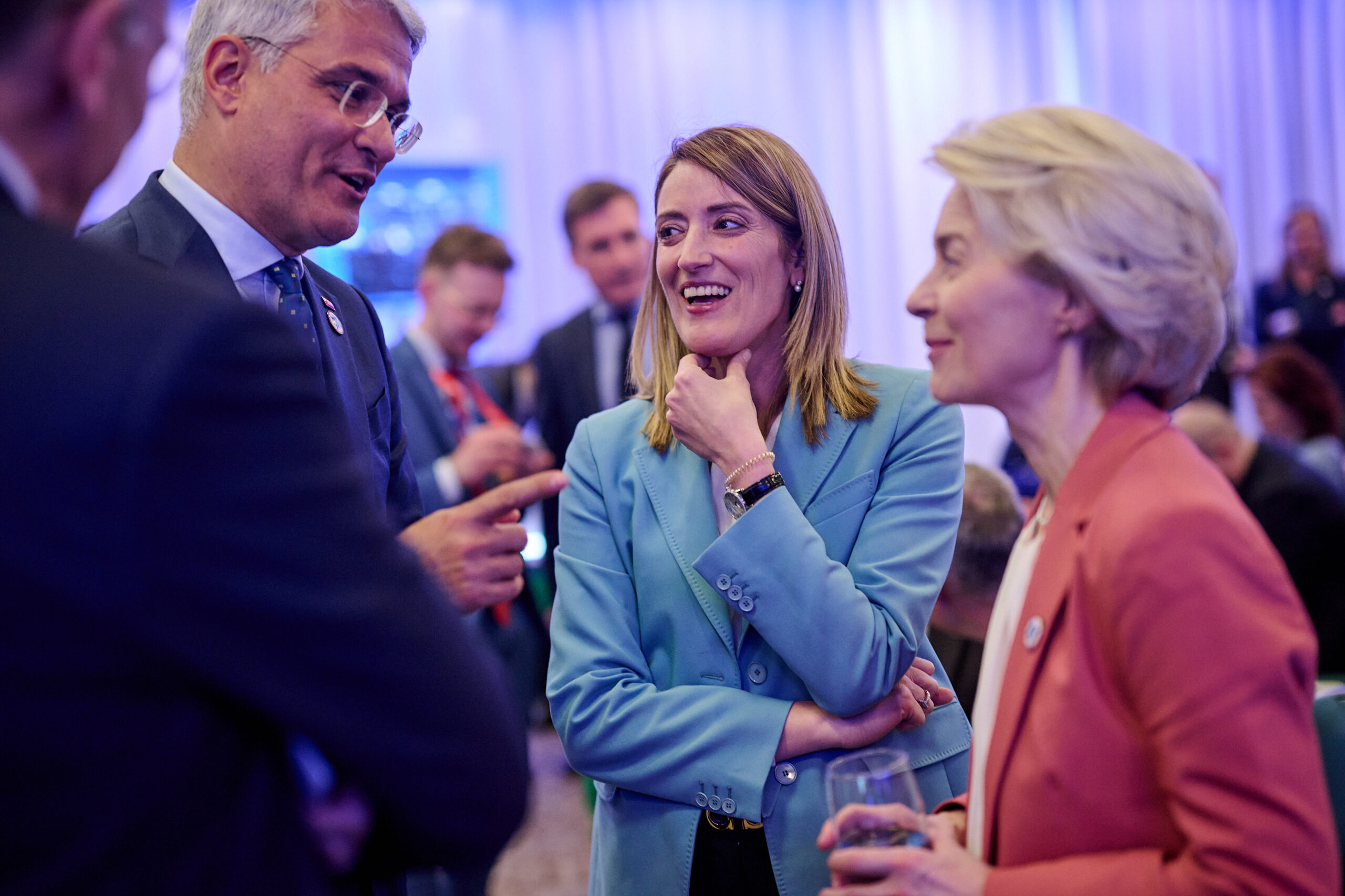Roberta Metsola was hailed by many as the solution to the corruption scandals the European Union has had to face lately. Qatargate and other dubious activities on the part of the decision-makers have been serious threats to the EU’s credibility but the recently re-elected President of the European Parliament presented herself to be a strict and fair leader who genuinely wanted to abolish loopholes. Until it turned out she easily could have misused some for her own advantage.
Bright Mind, Bright Future
Roberta Metsola made history in 2022 when she was elected president of the European Parliament. She won “absolute majority in a landslide vote”, becoming the first Maltese politician to preside over an EU institution, the third woman and the youngest ever to lead the European Parliament.
She was a polyglot, an educated democrat, a pro-European visionary, the embodiment of female empowerment. After all, she was the woman who refused to shake hands with Joseph Muscat, the former Maltese prime minister entangled in a web of corruption scandals, not to mention the assassination of investigative journalist Daphne Caruana Galizia.
Metsola was showered with praise after her win.
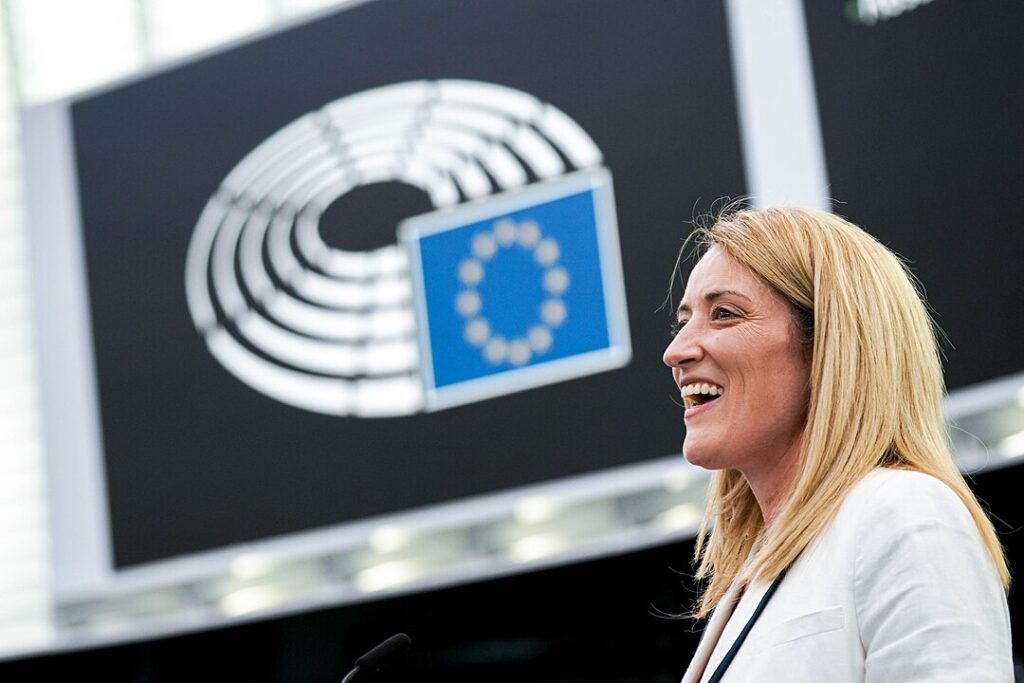
For her uniquely successful political career. For her abilities as “bridge-builder”. And for all the work she invested into upholding the rule of law and into the fight against corruption, at European Parliament’s LIBE commission or in the PANA Committee (the parliamentary committee investigating the Panama Papers revelations).
Former Prime Minister Lawrence Gonzi said she was “one of this special breed of Maltese”, serving her country, consistently displaying “professional and ethical standards”. It turned out that Lawrence Gonzi was right on the first, but wrong on the second.
Roberta Metsola gained “special” status within the EP, that’s true. Alas, the remark on her integrity has not withstood the test of time.
Or maybe she was referring to herself when she spoke about “easy cynicism” in her maiden speech as the president of the European Parliament.
Proficiency, the Lobby to Abusal?
A lawyer by profession, she should be no stranger to the subtleties of legislation and should not be considered a novice in interpreting EU laws, either. The more so, as she worked for the Permanent Representation of Malta as legal and judicial cooperation attaché. She also had a role in negotiating the Treaty of Lisbon, then worked as a legal adviser at the European External Action Service.
Thus, she should also be aware of the difference between the letter and the spirit, or essence of a legislative act.
Unless, of course, one is to believe to Austrian plagiarism expert Stefan Weber, who claims that her June 2003 thesis on Electoral Systems and Electoral Outcomes: A Comparative Study is “flawed by massive plagiarism”, meaning at least half of it was stolen from other works.
Stefan Weber claimed to have contacted Metsola for comments, in vain.
If he was right, the President of the European Parliament can join the illustrious club of copyright infringers at the helm of the EU, led by European Commission President Ursula von der Leyen. And just like von der Leyen, she will probably also keep her degree, “despite [its] obvious flaws”.
But this being the case, it would be easier to understand why her understanding of law might also “have flaws”.
Exemptions and Explanations
Maybe that was the reason, why she seemed to shield Bulgaria’s embattled Borisov Government when it was under fire for the findings of the Venice Commission, that invoked, among others, the misuse of EU funds and high-level corruption allegations.
And maybe this is the reason for her twisted understanding of integrity and conflicts of interests.
In the wake of the Qatargate Scandal, Metsola tried to save what could be saved (in terms of the credibility of the institution claiming to be the spearhead of the anti-corruption fight) and rushed to introduce a new code of conduct.
On September 4, 2024, it turned out that there was one person exempted from the code meant to regulate the European Parliament’s murky relations with lobbyists and third countries.
That person is the president of the European Parliament, because “the new transparency rules were aimed at vice presidents in charge of a specific portfolio, while Metsola as President represents the interest of the European Parliament as an institution”, as a spokesperson of hers clarified.
Thus, there was no conflict of interest between her and her husband, Ukko Metsola, who is a registered lobbyist and vice-president of Royal Caribbean Group, one of the largest cruise ship companies. Previously, he claimed that the Fit For 55 proposal was an “unprecedented regulatory tsunami” and “hugely ambitious.”
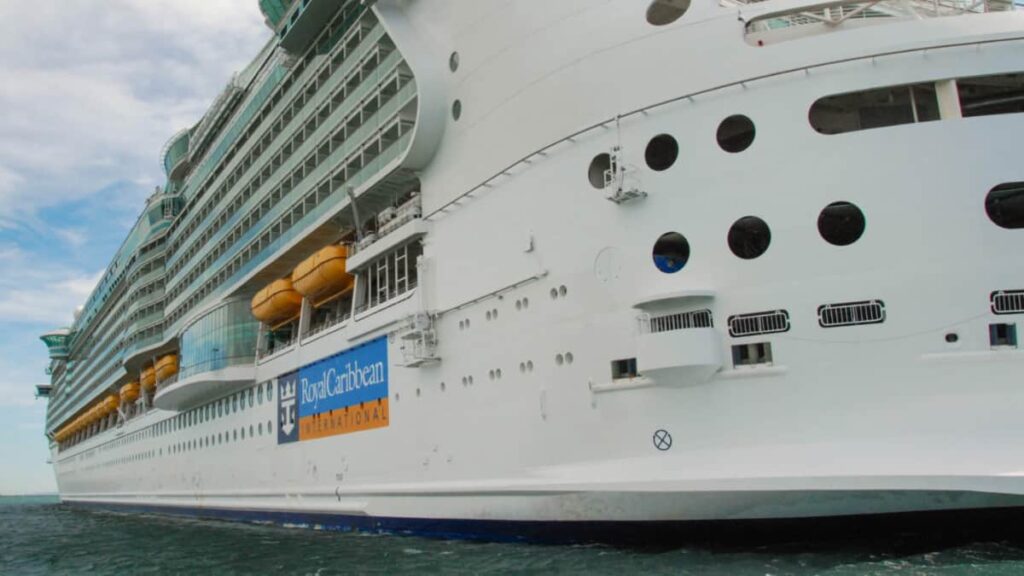
According to Metsola’s press office, “being married to someone in employment does not constitute a potential conflict of interest according to the Parliament’s rules”.
The couple didn’t make a secret of their relationship, either. Following Metsola’s election to the Parliament’s top post, MaltaToday declared them to be “Europe’s newest power couple”.
As the couple insists that the Great Wall of China is built between them, it surely must have been coincidental, that Metsola, an enthusiastic supporter of the Green Deal, had spoken positively about maritime transportation on several occasions, emphasizing the importance of the maritime sector for the European economy and its potential for sustainable growth.
It might have been also coincidental, that her husband was lobbying for EU support for the industry, to help its transitioning towards greener practices, pushing for carbon tax revenues to be sent to the cruise ship industry to invest in cleaning up their operations.
Ukko Metsola told to Politico that he “stopped lobbying MEPs directly to prevent even the perception of impropriety and that Royal Caribbean has now hired an extra person to engage the Parliament”.
It is unclear, who or when or how introduced to the MEPs that “extra person”, or whether the MEPs were aware that (s)he continued Ukko’s work. Many to whom Politico has spoken declared that they were well aware of the possible conflict of interest, but accepted it as something that “can happen” in Brussels. In Ukko Metsola’s own views, “I would like to think that we have managed it extremely well”.
Metsola’s press office issued a statement, claiming that “the mentioned changes to Parliament’s Code of Conduct have been drafted by MEPs in Parliament’s Committee on Constitutional Affairs and approved by Members in the Plenary”.
Though, the spokesperson failed to add the small, but crucial detail that it was based on the 14-point plan drafted by Metsola to prevent future corruption scandals. That it was her idea to demand “the Parliament’s senior members declare conflicts of interest, including any involving his or her family, emotional life or economic interest”.
Besides, the statement makes it look as if Metsola hadn’t had any idea what the institution led by her was voting on.
As a lawyer versed in international issues, Metsola surely knows that international criminal law puts special emphasis on command responsibility: the notion that a superior officer is legally accountable for the acts of commission of his soldiers, if he knew or had reason to know or should have known that those crimes had been committed.
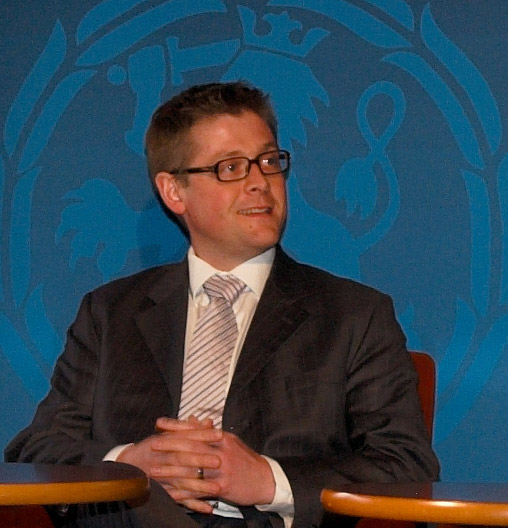
Though obviously neither Metsola, nor the MEPs wording the Code of Conduct are soldiers, it would be maybe important to investigate, whether she, as the President of the Parliament, someone deeply invested in the protection of rule of law and in the fight against corruption, should have known (noticed) that the Code of Conduct was flawed.
Metsola’s colleagues explained to Politico that “as president, she signs the laws but is not normally involved in amending them as they move through the chamber” and that’s probably not surprising given the sheer amount of legislation pushed out by the Parliament. Metsola also refrains from voting on “many of the EP’s motions and reports”.
But shouldn’t the fiercest anti-corruption warrior do the follow up work at least on her own initiative, especially as it came in a delicate moment amidst heavy international scrutiny and criticism. When it was about saving the reputation of the EU.
And if she did notice, was she required to step up and close that loophole?
And even if she was not required to notice or act upon that knowledge, shouldn’t she have kept not just the letter, but the spirit of the new norms and voluntarily declare the personal conflict of interest?
As her husband isn’t the only relative benefiting from Metsola’s position, she probably didn’t consider it.
Cronyism Beats Ethics, Apparently
On August 29, 2024 media reported that Metsola appointed her brother-in-law, Matthew Tabone as her chief of staff. Just like with the husband, the employment of Tabone wasn’t kept secret, in fact, he has been working to Metsola since 2013, in fact, he married Metsola’s sister in 2015. But it was managed with discretion, mostly being kept “under the radars”. When Metsola tried to appoint him to the role in 2022, she was forced to back down after the step prompted outcry.
Fellow Maltese Alex Agius Saliba described the move as “rampant nepotism”, while MEP Daniel Attard took the complaint to the EU ombudsman. He cited the European Parliament’s “commitment to the highest ethical standards” as the reason, declaring that the “Tabone Affaire” was not an “isolated incident”, but fit perfectly in the line of controversial decisions taken by Metsola, “undermining the commitment to ethical governance and transparency in the European Parliament”.
It is up to Emily O’Reilly to investigate the appointment of Tabone. She has already made her opinion clear, when she talked about the Metsolas, as she said that “conflicts of interest don’t necessarily need to be exploited to be a problem” and that “Eu institutions need not only to consider whether they have tackled actual conflicts of interest but also perceived conflicts of interest which can be equally damaging to public trust”.
It is not only Roberta Metsola who makes good use of the Parliament’s still fairly lax transparency rules.
But as she is representing the European Parliament as a whole, she should maybe lead with good example.
